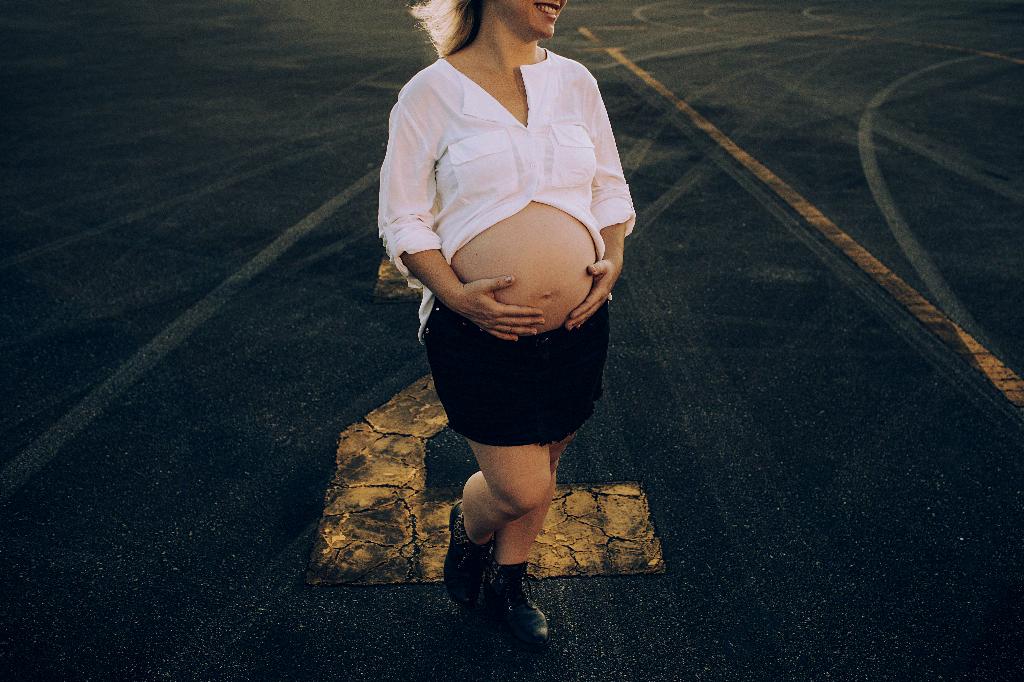When you are 2 months pregnant, you may start to notice some changes in your stomach. At this stage, your abdomen may begin to expand slightly as your uterus grows to accommodate your growing baby. This expansion can cause your stomach to feel fuller and slightly bloated. You might experience a sensation of tightness or a feeling of heaviness in your lower abdomen as your body adjusts to the changes happening inside.
Additionally, as your uterus expands, you may also notice some tenderness or sensitivity in the abdominal area. This can sometimes feel like mild cramping or a sensation of stretching as your body prepares for the growth of your baby. It’s important to note that every pregnancy is different, so the way your stomach feels at 2 months pregnant may vary from someone else’s experience.
Some women may also experience morning sickness during the early stages of pregnancy, which can contribute to a queasy or unsettled feeling in the stomach. This can manifest as nausea, vomiting, or a general feeling of unease in the stomach area. If you are feeling particularly nauseous, it’s essential to stay hydrated and eat small, frequent meals to help alleviate the symptoms.
Another common stomach-related symptom at 2 months pregnant is bloating and gas. Hormonal changes in pregnancy can lead to increased gas production and bloating, which can cause discomfort and a feeling of fullness in the stomach. It’s essential to eat a well-balanced diet and avoid foods that may exacerbate bloating to help manage these symptoms.
During the second month of pregnancy, you may also start to experience changes in your digestive system. Some women may notice an increase in constipation due to hormonal fluctuations and the pressure of the growing uterus on the intestines. This can lead to a feeling of heaviness or discomfort in the stomach area and may require dietary and lifestyle adjustments to alleviate the symptoms.
Additionally, hormonal changes in early pregnancy can sometimes relax the muscles in the digestive tract, leading to heartburn or acid reflux. This can cause a burning sensation in the chest or throat and may contribute to a feeling of discomfort in the stomach. Avoiding trigger foods and eating smaller, more frequent meals can help manage acid reflux and heartburn during pregnancy.
As your body continues to adapt to the changes of pregnancy, you may also notice changes in your appetite and food preferences. Some women may experience cravings or aversions to certain foods, which can impact the way their stomach feels. It’s essential to listen to your body and eat nutritious foods that provide the necessary nutrients for you and your growing baby.
At 2 months pregnant, you may also notice changes in your overall energy levels and mood, which can influence the way your stomach feels. Fatigue and mood swings are common symptoms in early pregnancy and may contribute to a sense of overall discomfort or unease in the stomach area. Taking time to rest, stay active, and practice self-care can help manage these symptoms.
It’s crucial to stay in close communication with your healthcare provider throughout your pregnancy to discuss any stomach-related symptoms or concerns you may have. Your provider can offer guidance, support, and reassurance as you navigate the physical and emotional changes that come with pregnancy. Remember that every pregnancy is unique, and it’s essential to prioritize your health and well-being during this transformative time.
In conclusion, the way your stomach feels at 2 months pregnant can vary from person to person, but common symptoms include bloating, gas, constipation, morning sickness, and changes in appetite. It’s important to listen to your body, eat a balanced diet, stay hydrated, and communicate openly with your healthcare provider to ensure a healthy and comfortable pregnancy journey.

